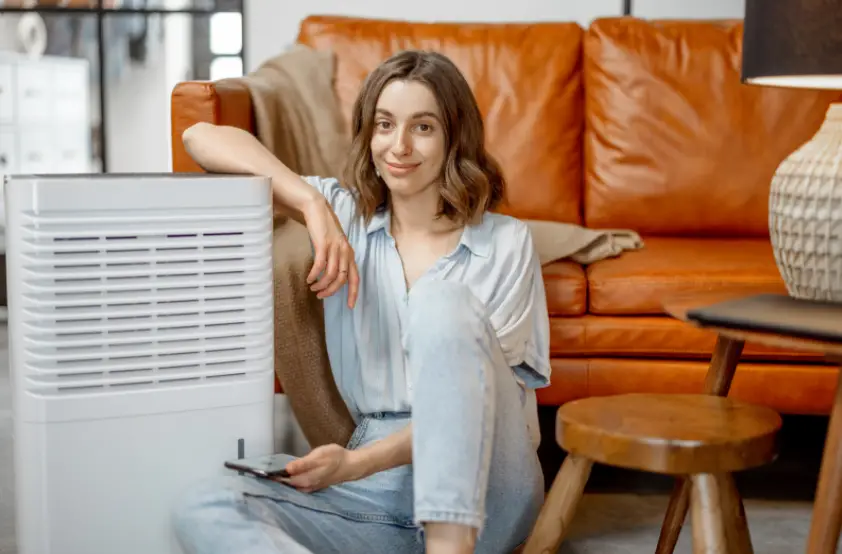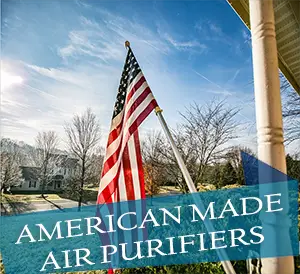
You may have heard about them and their cleaning abilities, but do air purifiers improve health? We will answer that in this article, along with other fast facts about air purifiers.
The world we live in is full of pollutions and it’s getting harder to breathe fresh air, especially if you live in the city. Therefore, we care about your health so we’d like you to know about air purifiers and how they can positively affect your overall well-being.
Air purifiers were built for a reason – to clean the air you breathe and to keep you away from nasty pollutants that can hinder your health, worsen allergies, and cause excessive coughing. Whether or not you have asthma, hay fever, or just feel suffocated with dusty air, such devices are going to be helpful for your living, studying, or working space.
Do air purifiers really make a difference?
Yes, they do! Air purifiers are made with special filters known as HEPA filters, which trap dirt and dust up to 99.97% for particles as small as 0.3 microns. But with the many units out there, you’ll need an air purifier buyer’s guide, which we have below:

1. Coway Airmega 300 Smart Air Purifier
As an air purifier made for up to 1,256 square feet of coverage, it has true HEPA for dust and activated carbon for bad smells. With 5 fan speeds to choose from, the highest noise level is only 43.2 dB so it will be ideal for people with allergies and want to sleep peacefully. It is also Energy Star-certified and only consuming 56 watts of power.

2. Dyson Pure Cool TP04
If you want a sleekly-designed air purifier, this is a great choice. It is a multipurpose fan and air purifier that also has an activated carbon filter other than a HEPA filter. Easily controlled by a magnetic remote, it has a fan-less blade design that’s safe around kids and pets.
Moreover, it has a backward airflow design that allows air purifying in a different direction for better coverage (it has up to 350 degrees of oscillation).

3. COLZER Air Purifier with True HEPA Air Filter
Ideal for rooms up to 900 square feet, this air purifier has a total of 5 speeds to choose from. It will be suitable for the baby room due to its 29-dB noise level in the lowest setting.
It only consumes 45 watts so it won’t impact your electric bill. It even has an ECO mode to conserve energy and has a filter life display to avoid constantly opening the unit to check.

4. Medify Air MA-112 V2.0 Air Purifier
For a large room or home, this air purifier will do the trick since it will cover up to 2,400 square feet. It has a dual-intake design that makes it faster when it comes to air cleaning capabilities.
With 4 fan speeds, a child lock, and asleep more, it uses H13 HEPA so it is recommended for people with asthma and allergies. Moreover, it is CARB, Energy Star, and ETL-certified for eco-friendliness.
Are air purifiers good for your health?
Definitely! Air purifiers are good for everyone’s health because they can do the following:
- They clean up your air from pollutants. Air purifiers use HEPA filters to eliminate dust in the air, which may include dirt, pollen, pet dander, and the like.
- They eliminate harsh chemical smells. VOCs from chemicals will be eliminated using the activated carbon filters found in most air purifier units.
- They help you sleep better at night. Due to cleaner air, you’ll wake up feeling fresh and without the asthma attacks or sneezes.
- They lessen asthma and allergy symptoms. As mentioned above, air purifiers lessen pollutants so your allergies and asthma symptoms won’t act up too much.
Do doctors recommend air purifiers?
Yes, doctors and health experts do recommend the use of an air purifier. They advise that you should get a HEPA filter because they are more powerful than a standard filter and will take out even smaller particles. Moreover, health experts do recommend air purifiers to people with allergies and asthma since they will lessen the symptoms.
When it comes to air purifier placement, doctors also advise that such devices should be placed in the bedroom. That’s because we spend more time sleeping, and thus, staying in one place.
Effectiveness of air purifiers
So, what exactly does an air purifier have that makes it effective in cleaning the air? Here are its key features:
1. HEPA filter
In some cases, this can be a true HEPA filter or even a medical-grade H13 HEPA filter. This is the main filter that gets rid of the dust from the air and sucks it up like a vacuum cleaner. Then, when the filter is all used up, you can just replace it with another one. They will clean particles as small as 0.3 microns (0.1 microns for H13 HEPA).
2. Activated carbon filter
When it comes to the bad smell department, activated carbon filters are the ones to count on. Nearly every air purifier in the market today has an activated carbon filter next to the HEPA filter to make sure that even smoke and pet odors are eliminated, as well as VOCs from household chemicals.
3. Automatic mode
With this feature, you don’t need to manually tweak the speed settings based on the air quality in real-time. The automatic mode detects the air quality in your room and does the magic for you. This helps get your R&R without having to wake up in the middle of the night, or you can use this feature when you’re busy doing something else.
Conclusion
To wrap it up, the air you breathe will have an impact on your health, so let’s keep the effect positive by maintaining clean indoors using an air purifier. With the many choices in the market today, if you still don’t know which is the best air purifier to buy, we hope you can get an idea from our list above, as well as our fast facts and buying guide.


